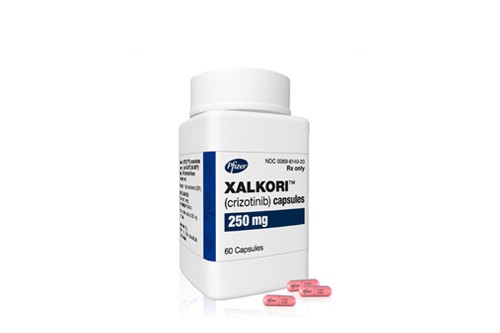
Patients in England and Wales with lung cancer should not have access to Pfizer’s Xalkori through the NHS at the drug’s current price, according to new draft guidance from cost-effectiveness body the National Institute for Health and Clinical Excellence (NICE).
NICE said that despite being a clinically effective treatment, Xalkori (crizotinib) was not a cost-effective use of NHS resources for use in its approved indication of previously treated anaplastic-lymphoma-kinase-positive advanced non-small-cell lung cancer (NSCLC).
According to NICE, a course of treatment with Xalkori would cost the NHS between £37,512 and £46,890 until disease progression, and a course after disease progression would be £51,579.
At these prices, NICE determined that the cost per quality adjusted life year (QALY) for Xalkori would be £63,800 and £181,100 when compared with chemotherapy docetaxel, and between £51,700 and £80,500 when compared with bet supportive care.
NICE’s usual QALY threshold is £30,000, although a higher QALY may be accepted if the drug qualifies as an end-of-life treatment.
This did not apply to Xalkori, however, with NICE chief executive Sir Andrew Dillon noting that “even if the supplementary advice to the committee for life-extending treatments had applied, crizotinib could not be considered a cost-effective use of NHS”.
Ethical considerations in data demands
In response Pfizer criticised the demands made by NICE used to estimate the magnitude of Xalkori’s overall survival benefit, claiming that they presented an ethical challenge.
According to Pfizer, the trial to assess Xalkori allowed patients in the chemotherapy arm the opportunity to receive Xalkori once their cancer had progressed.
This trial design meant more patients were able to benefit from Xalkori, but it also meant there were difficulties in comparing overall survival between the two arms of the trial because both groups of patients had received Xalkori.
“There remains a great need for either a new approach to account for this ethically important factor of clinical trial design or for changes to the technology assessment process to take this into account,” said Pfizer.
The guidance is now open for consultation, after which second draft guidance will be published.




